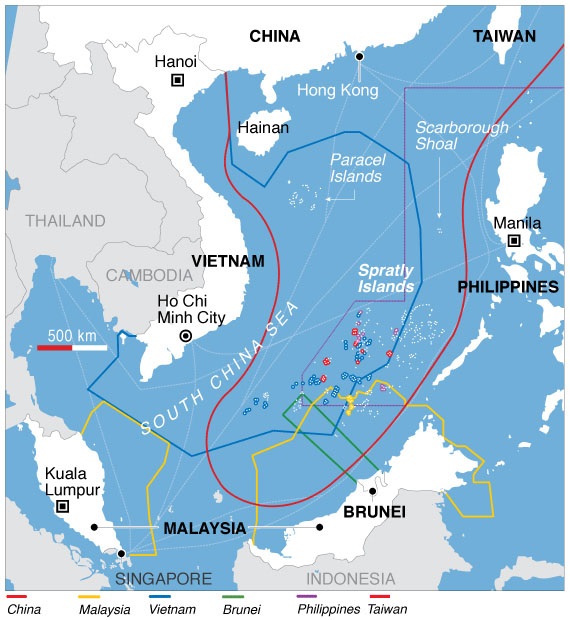Adm. Samuel Paparo, the head of US Indo-Pacific Command, said Tuesday that the US military was open to consultations with the Philippines on escorting Philippine vessels in the South China Sea, which would put the US in direct confrontation with China.
The US has repeatedly vowed that the US-Philippine Mutual Defense Treaty applies to attacks on Philippine vessels in the South China Sea, which means the US is pledging to intervene and fight China if the maritime dispute turns hot.
Philippine vessels often have tense confrontations with the Chinese Coast Guard near disputed reefs in the South China Sea, which sometimes end in collision. Chinese boats have frequently intercepted Philippine vessels as they were attempting to resupply a grounded warship on Second Thomas Shoal.

Paparo was asked if the US military would accompany Philippine vessels resupplying Philippine forces in the South China Sea. “Certainly, within the context of consultations,” he said, according to The Associated Press. “Every option between the two sovereign nations in terms of our mutual defense, escort of one vessel to the other, is an entirely reasonable option within our Mutual Defense Treaty, among this close alliance between the two of us.”
Paparo made the comments at a joint news conference with the head of the Philippine military, Gen. Romeo Brawner Jr., who expressed more caution about the idea. “The attitude of the Armed Forces of the Philippines, as dictated by the Philippine laws, is for us to first rely on ourselves,” Brawner said. “We are going to try all options, all avenues that are available to us in order for us to achieve the mission…in this case, the resupply and rotation of our troops. We will then seek for other options when we are already constrained from doing it ourselves.”
The comments came amid a spike in tensions between China and the Philippines as two incidents near the disputed Sabina Shoal ended in collision, with the two sides trading blame.


